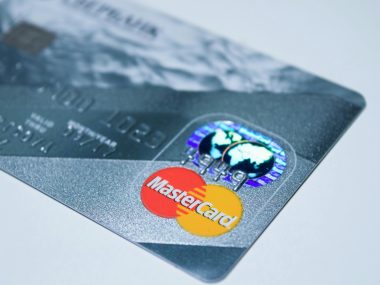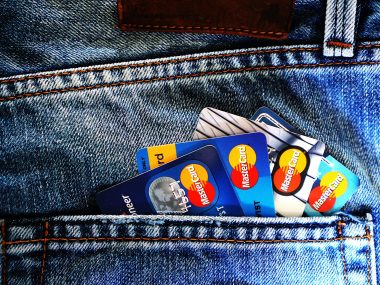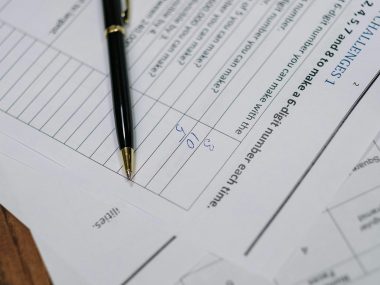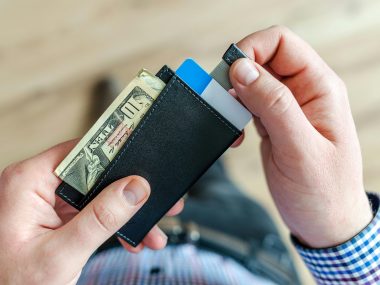In a world where financial transactions are increasingly digital, credit card fraud risk has escalated. You must arm yourself with the knowledge and tools to safeguard your finances.
This guide will discuss practical measures to secure your credit cards against fraudulent activities, how to detect scams proactively, what immediate actions are vital in case of suspected compromise, and the role of advanced monitoring tools and services in protecting your credit.
What Are The Most Effective Steps to Protect Myself From Credit Card Fraud?
Your best defence against credit card fraud is proactive vigilance. Taking certain precautionary measures can decrease the risk significantly.
Start by treating your credit card statements as required reading. Just as you might scrutinise a bank statement, give your credit card statements the same level of attention. Regular review can reveal unauthorized transactions, alerting you to take immediate action.
Strong, distinct passwords across your online accounts add another layer of security, making it challenging for scammers to gain access, especially with the help of two-factor authentication, where it’s available.
Remember, your credit and debit cards are as valuable as cash. Keep them secure and confidential. Sharing your PIN or card details can be an open invitation to fraudsters. Phishing attempts can be subtle and deceiving; therefore, always verify the legitimacy of links and sources before clicking or divulging personal information.
Consider leveraging technology to your advantage by signing up for transaction alerts from your credit card provider. These can be crucial in receiving prompt notification of suspicious account activity.
Here are specific examples of steps to take:
- Consistently check your credit card statements for unrecognised transactions and report them to your issuer immediately.
- Create strong, unique passwords for all online accounts and enable two-factor authentication.
- Never share your PIN or card details with strangers or in response to unsolicited emails or phone calls.
- Stay alert to phishing attempts: Don’t click on dubious links or provide personal data to unverified callers or emails.
- Enable alerts from your bank or credit card issuer to get immediate updates on any unusual activity on your account.
These guidelines must be a regular part of managing your financial health, not just a one-time checklist.
How Can I Spot A Credit Card Scam Before I Fall Victim To It?
Your ability to recognize a scam before it ensnares you is a pivotal part of protecting your credit. Use your intuition—if an offer looks too good to be true or a request for information seems out of place, take a step back and evaluate.
Be particularly wary of unsolicited calls or messages that ask for personal information. A legitimate financial institution will not request sensitive credit card details over the phone or via email. Emails with glaring grammatical errors, spelling mistakes, or impersonal greetings are common traits of phishing that target your credit card info.
Regularly inspecting your credit card statements can reveal early signs of fraud, such as small but unfamiliar charges. These could be the scammer’s ‘tests’ before making larger illicit transactions. Ensure the website’s security Whenever you enter your credit card details online. Indicators of a secure site include the “https://” protocol and a padlock symbol in the URL bar.
To effectively spot scams, remember:
- Always question unsolicited requests for your credit card information, especially over the phone or email.
- Look out for email red flags: poor grammar, misspellings, and non-specific greetings often signal phishing.
- Regularly review your card statements for small, unrecognized charges.
- Do not share any credit card details with unexpected callers or emailers.
- Before entering payment details, confirm the transaction is on a secured website.
Conclusively, staying vigilant and questioning anomalies can prevent most attempts at credit card fraud.
What Should I Do Immediately If I Suspect My Credit Card Information Has Been Compromised?
If you suspect your credit card details have been compromised, time is of the essence. Acting fast can mitigate potential losses and prevent further unauthorized card use.
Your first step should be to contact your bank or card issuer to inform them about the suspected fraud. They can block your card or freeze your account to halt further transactions. Next, scrutinise your recent transactions for anything you don’t recognize; these could be fraudulent.
Update your online passwords and PINs as soon as possible. Changing these can aid in cutting off access to your accounts. It’s also critical to report the incident to the authorities, including the local police and credit reporting agencies, to safeguard your credit score and public records.
Post-incident, monitoring your credit report is essential to catch any new fraudulent activities and ensure your financial status remains secure.
Actions to undertake include:
- Contact your bank or credit card issuer to block your card or account.
- Review recent transactions meticulously for signs of unauthorized activity.
- Change your online banking passwords and PINs promptly.
- Report the incident to the police and credit reporting agencies.
- Monitor your credit report regularly for new suspicious activity.
Taking decisive action can help minimize the damage and restore your sense of security.
Are There Any Specific Tools Or Services That Can Help Me Monitor My Credit Card Activity For Fraud?
Yes, various tools and services are at your disposal for monitoring credit card activity and spotting potential fraud. Here’s a rundown of options:
Transaction alerts are a free and effective way to stay on top of your account activity. Many credit card issuers offer these alerts via email or SMS. Mobile banking apps not only offer convenience but also come with security features that can help you keep track of real-time transactions.
Credit monitoring services provide a more robust solution, looking out for unusual changes in your credit report and, in some cases, offering additional protection against identity theft. Additionally, certain credit cards have their own protection tools and features, including the capability to lock your card’s usage.
Advanced monitoring can involve the following:
- Enroll in transaction alerts to be notified of any account activity.
- Use mobile banking apps for on-the-go account balance and transaction checks.
- Try credit monitoring services for broader surveillance of your credit reports and scores.
- Investigate the protection features of your credit card, such as locking mechanisms.
- Regularly review your credit reports from the major credit bureaus for any discrepancies.
With these tools, you are better equipped to detect fraud early and act swiftly.
How Often Should I Check My Credit Card Statements For Unusual Activity?
Vigilance is vital when spotting irregular activity on your credit card. You should review your statements every month as they become available. Additionally, setting up account alerts for each transaction or for transactions above a certain threshold can provide immediate insights into any suspicious activity on your card.
Even small charges warrant a closer look; these could be initial tests by fraudsters ahead of larger unauthorized transactions. Regular password changes and updated security questions are critical in maintaining account security.
For those who prefer to be even more hands-on, mobile banking apps and credit card issuer websites offer the ability to check activity between statements.
Here’s a brief checklist:
- Examine your credit card statements monthly without fail.
- Set up account alerts for every transaction or for larger transactions.
- Be extra attentive to small, unexplained charges.
- Regularly update online passwords and security verifications.
- Use banking apps or websites to keep tabs on account activity in real-time.
Remember, frequency is as important as thoroughness in your efforts to keep your credit safe.
Safeguarding Your Financial Future
Understanding how to protect yourself from credit card fraud is crucial in today’s digital landscape. By consistently employing these best practices, utilizing efficient tools and services, and remaining vigilant about monitoring your accounts, you can significantly reduce the chances of falling victim to fraud.
Stay educated, stay alert, and take prompt action to maintain the integrity of your financial wellbeing.
Please Help Share This Post









